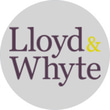- OT
- Life in practice
- Career development
- Funding further optometry education
The workshop
Funding further optometry education
Lloyd & Whyte independent financial adviser, Harmy Bains, offers guidance on what to consider when saving for future education

02 January 2024
The scenario
Nick, AOP member
“I am a newly-qualified optometrist and now I am earning a full-time salary I want to plan my finances effectively to ensure that I can meet my career goals of completing further education, which can be costly. What financial tools, tips and advice can you share to help me achieve my goals?”
The advice
Harmy Bains, independent financial adviser at Lloyd & Whyte
As a newly-qualified optometrist, you state that you are in receipt of a full-time salary. This hopefully means that you can start to budget and organise your finances to align with your life goals. If you plan to develop your education through obtaining a new qualification (maybe a higher certificate in glaucoma or an independent prescribing diploma), or wish to complete further education, effective financial planning can set you up for an enjoyable and productive experience instead of a last-minute attempt to frantically find a way to fund it.
You might be able to pay for your tuition fees through a student loan, but maintenance costs such as housing, equipment, books, socialising and other expenses will need to be funded.
Budget
Create a method of figuring out your income and outgoings for each month and year. See if you can eliminate non-essential expenditure and utilise surplus funds to save and invest. When it’s all in black and white in front of you, it’s much easier to see what you can save and what you can spend.
Pay off debts, loans, and credit cards
If you have any debts, loans, or credit cards, paying them off could free up your income to be put towards saving and investing for your future. Prioritising paying off debts with the highest interest rate and usually the highest rate of repayment is a good place to start.
An Individual Savings Account (ISA) is a great way of saving without paying tax on the interest accrued. The tax-free limits for the 2023–2024 tax year (which runs from 6 April to 5 April each year) is currently set at £20,000 a year.
This means you can save up to £20,000 each year, and save across a variety of ISAs, splitting the allowance across, for example, a cash ISA, a lifetime ISA, and stocks and shares ISA. Please note that a stocks and shares ISA provides no guarantee that your invested money will increase and you may not recoup the amount you originally invested.
If you’re thinking of opening an ISA, it’s worth talking to an independent financial adviser about the rates of interest available and what type of ISA to open.
Investing
Investing is often associated with longer term financial planning, such as retirement planning or saving for your children’s future. You can however set up a regular savings investment plan with a shorter timeline, allowing you to access your funds whenever you want (instant access) or in the near future (one year fixed rate).
Investing can be one way of growing your finances compared to relying on accumulated cash, which can lose its value over time due to inflation – for instance, an item that you can buy for £100, won’t be able to be bought for £100 in ten years’ time.
Long-term investing also takes advantage of the compound effect of growth, which is where you earn money on the money you have saved, and on the growth you have earned along the way.
If you are thinking of setting up a regular savings investment plan, we advise you enlist the help of an independent financial adviser, who can tailor and manage your investment portfolio for you. Your independent financial adviser will be able to create a portfolio in line with your ‘attitude to risk’ and advise you on when to buy and when to sell.
Please note there is no guarantee that money you invest will either increase, or you’ll recoup the amount you initially invested.
If you’d like to start building a financial plan to forward your career and future with the help of Lloyd & Whyte, please book an appointment online or call 01823 250750.
Lloyd & Whyte (Financial Services) Ltd are authorised and regulated by the Financial Conduct Authority. Registered in England No. 02092560. Registered Office: Affinity House, Bindon Road, Taunton, Somerset, TA2 6AA. It is important to take professional advice before making any decision relating to your personal finances. Information within this article is based on our current understanding of taxation and can be subject to change in future. It does not provide individual tailored investment advice and is for guidance only. We cannot assume legal liability for any errors or omissions it might contain. The value of investments can go down as well as up and you may not get back the full amount you invested. The past is not a guide to future performance and past performance may not necessarily be repeated. If you withdraw from an investment in the early years, you may not get back the full amount you invested.


Comments (0)
You must be logged in to join the discussion. Log in